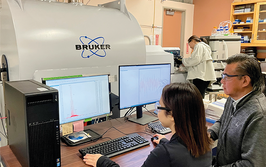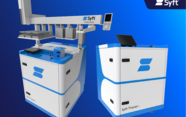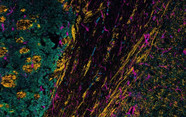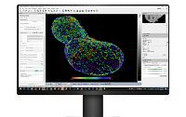
Scripps Research Influencers
As the renowned institute turns 100, we feature the Scripps scientists who have appeared on The Analytical Scientist Power List…
James Strachan | | 5 min read | News

John Yates III
Ernest W. Hahn Professor, Departments of Molecular Medicine and Neurobiology, The Scripps Research Institute, USA
John Yates is focused on the development and application of mass spectrometry-based proteomics techniques to a wide range of biological questions. He has appeared on The Power List on five occasions – including in 2013, the first Power list, when he was ranked number one. In 2013, he championed the impact of technology in life science. “It’s the power of the technology that we and others have developed in quantitative proteomics to enable the study of all kinds of new things,” he said. “As new questions come up in biology it often requires technology development to get a real insight, and that’s made life fun over the last 20 years.”
In 2015, when asked about his “encounters with serendipity,” he said: “Maybe, but there have been many more ‘aha’ moments. One of the first was when I first tried to search tandem mass spectra through a set of sequences and it worked well. I expected it not to work.”
Fast forward to 2023, John was ranked as one of the top 10 Leaders and Advocates of the decade. He said: “We need to hammer on the fact that our lives are touched by analytical science in everything we do. It keeps our water, food and air safe, it helps us diagnose disease, and it helps drive innovations and discoveries.”
Articles featuring John Yates

Gary Siuzdak
Senior Scientific Director and Professor of Chemistry, Molecular, and Computational Biology at Scripps, USA
Gary Siuzdak has developed MS-based methods to measure and identify metabolites, and his laboratory has built widely used software tools, including the METLIN database. He has been featured in The Power List on three occasions (2017, 2019, and 2021). Why metabolomics? In 2017, he said, “In a word: phenotype – metabolites are the most downstream components in the biochemical cascade and therefore are closest to the phenotype. Thus, metabolomics can be used to identify metabolites for phenotype modulation; I believe this is where the real power of metabolomics lies.”
In 2021, when asked about his heroes, he said: “Think of a world without quadrupole mass spectrometry. Without the contribution of Nobel Prize winner Wolfgang Paul (a personal hero), quadrupole mass spectrometry technology probably wouldn’t have ever existed.”
In 2023, XCMS-METLIN – the first completely data-driven metabolomics/lipidomics platform with MS/MS data on over 930,000 authentic standards – was ranked first in The Analytical Scientist Innovation Awards.
Articles featuring Gary Siuzdak

Kurt Wuthrich
Cecil H. and Ida M. Green Professor of Structural Biology, Department of Integrative Structural and Computational Biology, The Scripps Research Institute, USA
Kurt Wuthrich has been featured on The Power List on two occasions (2013 and 2015). Kurt’s research has focused on molecular structural biology, protein science, and structural genomics. And in 2002, Kurt was awarded the Nobel Prize in Chemistry: “for his development of nuclear magnetic resonance spectroscopy for determining the three-dimensional structure of biological macromolecules in solution.”
The Scripps Research Institute’s motto is turning scientific inquiry into innovative treatments that benefit the world. On a related note, this year’s Power List is all about impact. We want to shine a light on the leaders and influencers in analytical science whose work is transforming the world around us – for the better. Nominations are now open!
Kurt Wuthrich headshot - Credit: Kurt Wuthrich in 2022 at Scripps 02 by Cmichel67/ CC BY | All other headshots - Credit: Supplied by Interviewees

Over the course of my Biomedical Sciences degree it dawned on me that my goal of becoming a scientist didn’t quite mesh with my lack of affinity for lab work. Thinking on my decision to pursue biology rather than English at age 15 – despite an aptitude for the latter – I realized that science writing was a way to combine what I loved with what I was good at.
From there I set out to gather as much freelancing experience as I could, spending 2 years developing scientific content for International Innovation, before completing an MSc in Science Communication. After gaining invaluable experience in supporting the communications efforts of CERN and IN-PART, I joined Texere – where I am focused on producing consistently engaging, cutting-edge and innovative content for our specialist audiences around the world.

























